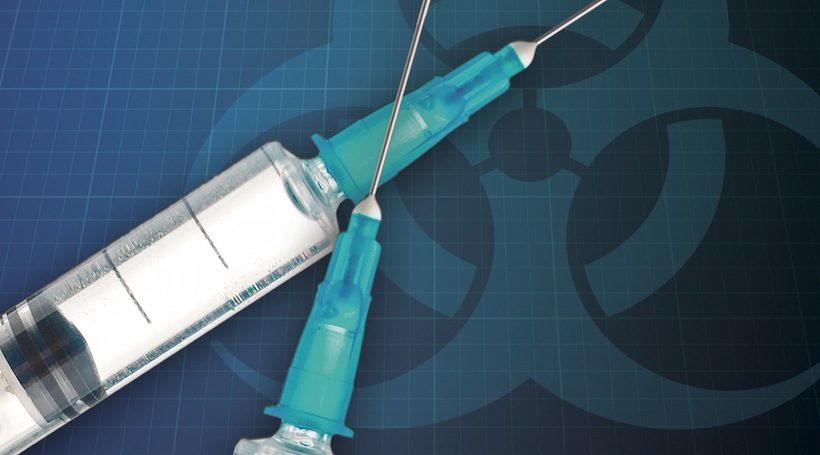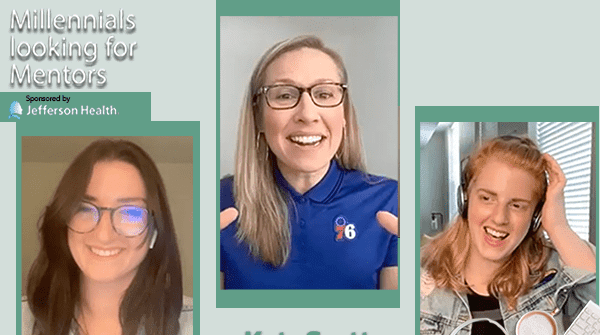Georgett Watson has seen a lot in her lifetime – things that most people never have and probably never will. But Watson, COO of South Jersey AIDS Alliance (SJAA), has a way to find the silver lining.
Take, for example, the time Watson handed a young woman – an intravenous drug user – a container to safely store her needles.
“Thank you so much,” the girl said. “When my mom goes through my drawer and finds my needles, she gets really mad. But if it’s in a container, she’ll be happy.”
For Watson, that comment meant one very important thing. “She was still at home,” says Watson, who has been with SJAA for 24 years. “Her mom understood there was an issue and was trying to work through it. Though my heart went out to her mom, a lot of drug users aren’t treated very kindly in most places.”
When Watson encountered the girl, she was participating in the AIDS Alliance’s syringe access program, exchanging used needles for clean ones and distributing safe storage containers. Five New Jersey nonprofits participate in the exchange program, including the Camden Area Health Education Center.
The Camden center has run a mobile syringe exchange unit, handing out tens of thousands of needles, for almost eight years. Between the Camden and Atlantic City locations, nearly 60,000 clean needles were dispensed in 2015, the last year data was collected.
In New Jersey, there are nearly 20,000 IV drug users, according to the State Department of Human Services. One dangerous result of sharing needles is the contraction of HIV – in 2014, out of the 1,536 new cases of HIV in New Jersey, about 240 were from intravenous drug use, according to the Center for Aids Research at Emory University. So while the AIDS Alliance and Camden center offer many support services to IV users, the goal of the needle exchange program is not to stop addiction, but to stop HIV.
“People who are addicted to drugs are going to do whatever they feel they need to do to maintain those habits,” says Martha Chavis, executive director of the Camden Area Health Education Center. “The fact that now, while they’re dealing with their habits, you can have them not sharing needles, is important.”
But recently, both programs have been placed in jeopardy because of lost funding. Federal funding – which both sites receive – can be used for staff salaries or other services like STD or HIV testing, but not to purchase syringes. So the nonprofits solicit private funding from foundations, like the Elton John AIDS Foundation or AIDS United. Because there are only so many foundation grants available, sometimes there is no money to purchase new needles – as seen last summer.
Budget restrictions caused the five syringe exchange sites in the state to nearly run out of new needles. (Well of Hope, a needle exchange in Paterson, did run out.) In response, Gov. Chris Christie signed legislation in late August to give the programs $200,000 to divide evenly.
“We were fortunate enough to not run out of syringes or funding, because once that money came through, it was enough to buy a year and a half worth of syringes for all the sites,” Watson says. “And that’s what we really need the money for.”
But critics of the program question the validity of giving out tools that support addiction.
“You can say that,” Watson says. “But no matter what, the people we see are not at a point in their life when they want to stop. They’re either going to use a dirty needle over and over again, or you can give them a clean one and a group of people to interact with that they can trust. Hopefully, that will lead them to get clean.”
“It’s so hard,” Watson continues. “There are some people who don’t understand. I can see their point of view, I can, but then I see the point of view that any life out there is worth saving. If they pass away, they can’t get clean. We’ve met lots of parents who lost children. When I hear the nasty comments, I try to tell people, ‘What if that was your mother or sister? Would you want us to help them?’”
Though it can be difficult to provide data that measures the success of needle exchanges, both Watson and Chavis point to information on the spread of HIV. In 2008, the first year data is available, 250 new cases of HIV from IV drug use were reported in New Jersey, according to the Center for Aids Research at Emory University. By 2009, there was nearly 300. But by 2011, that number had dropped below 200. The AIDS Alliance began its needle exchange program in 2008, and the Camden unit began operations in 2007.
Currently, however, the Camden mobile unit is not operating. Until last year, the mobile unit had permission from the city to park on unoccupied land. But that land is now being built on as part of the city’s redevelopment plans, so the unit had to move. Without a consistent place to park, the unit was placed out of service. Chavis says the center is still working with the mayor’s office to a secure a new location.
In addition to the needle exchange, both organizations offer other services.
The AIDS Alliance runs a drop-in center called Oasis, where clients can take a shower, meet with a counselor, get health screenings and receive information on treatment programs. Oasis served nearly 1,700 people in 2015.
Camden Area Health Education offers similar services at its freestanding facility. In 2015, more than 2,000 people walked through the Camden program’s doors.
A lot of those people, Watson says, don’t have anywhere else to go, so the administrators, nurses and volunteers are quick to offer whatever support they can – without judgment.
“You’re seeing individuals who are addicted to drugs, and you try to get across the message, ‘Hey, you can get additional help here,’” Chavis says.
“I know everybody who volunteers and everybody who works here,” Watson adds, “they find it really rewarding, because they know they’re helping someone stay healthy. If someone comes back and needs something more, we can work on that.”
And success does happen, Chavis says – not every day, but it happens.
“It’s not all that often,” she says, “but sometimes people come back to us, and we can’t even recognize them. They say, ‘You helped me go in a direction that I’ve now benefited from. I’m no longer drug addicted. I’m doing well with my life.’ And let me tell you, it sends chills up your spine.”










